#害怕
Explore tagged Tumblr posts
Text
只有當你與自己不和諧時,你才會害怕。人們之所以恐懼,是因為他們從未正視過自己。整個社會都是由害怕內心未知的人組成的!—— 赫爾曼·黑塞
youtube
“You are only afraid if you are not in harmony with yourself. People are afraid because they have never owned up to themselves. A whole society composed of men afraid of the unknown within them!” - Hermann Hesse
#Harmony #afraidofmonsters #UNKNOWNBOY
赫尔曼·卡爾·黑塞(德語:Hermann Karl Hesse,1877年7月2日—1962年8月9日),擁有德國、瑞士雙重公民權的诗人、小说家和畫家。著名作品包括《德米安:徬徨少年時》、《荒野之狼》、《流浪者之歌》和《玻璃珠遊戲》,每部作品都探索個人對真誠性、自我認知和靈性追求。1946年,他榮獲諾貝爾文學獎。
1 note
·
View note
Text
was looking for a screenshot but I just love this one

#害怕到模糊XD#the contrast between them is hilarious#I love AJ in The Cardboard Stegosaurus so much#The Cardboard Stegosaurus#shoot from the hip#sfth rambles#sam russell#alexander jeremy#own post
46 notes
·
View notes
Text
好的我错了家人们再也不发癫了(靠我再也不了(尴尬)
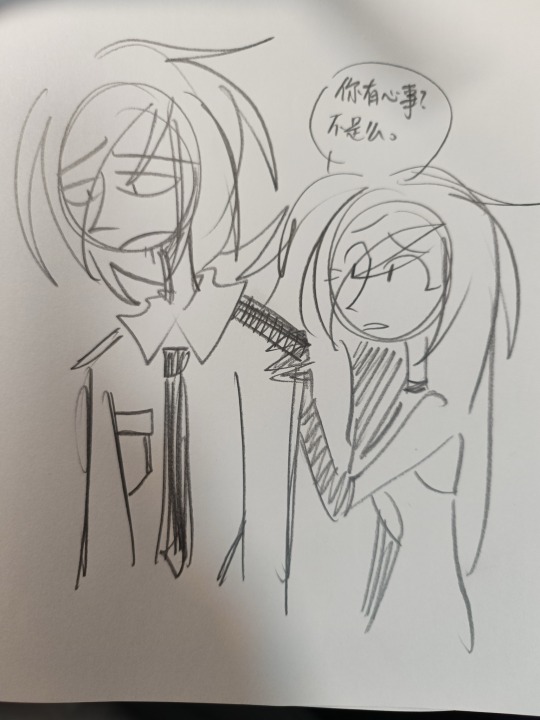

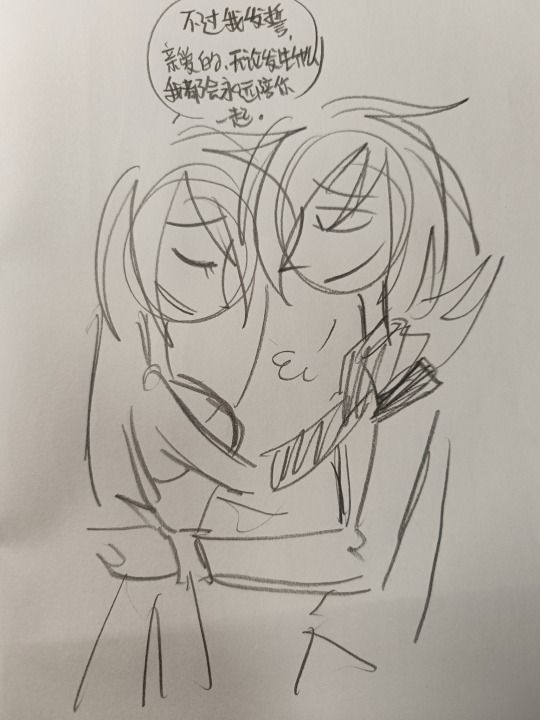

43 notes
·
View notes
Text
Cheng Yi villain character when? ft llh and his beautiful expressions

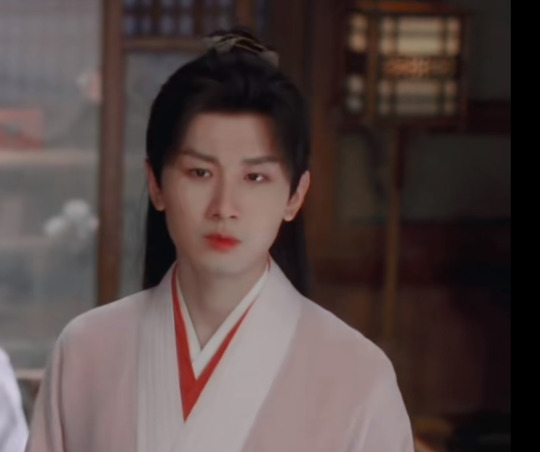
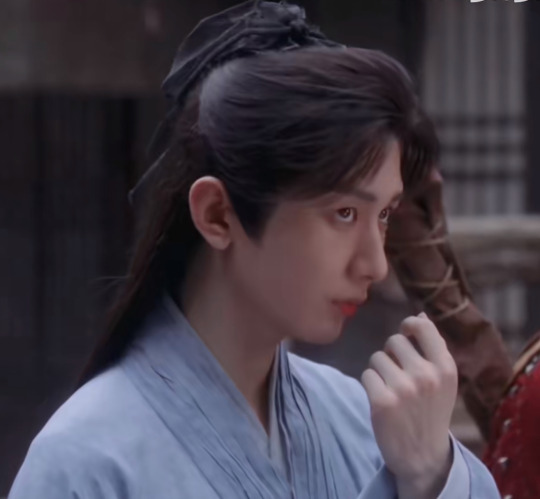
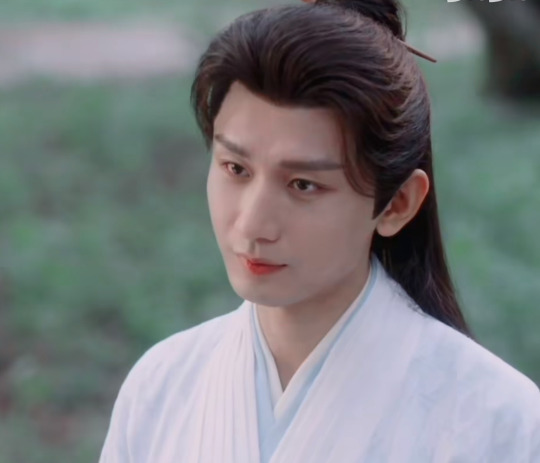
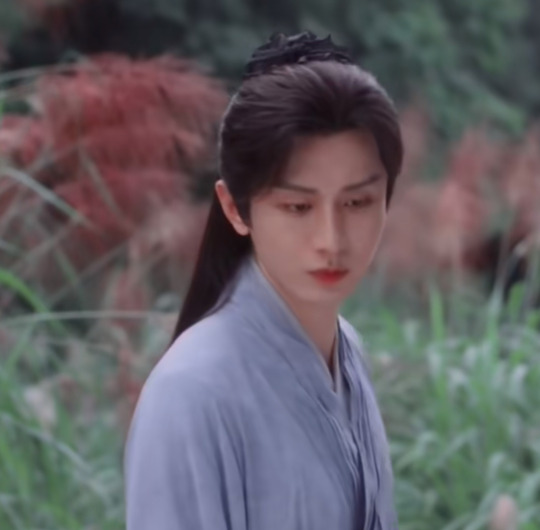
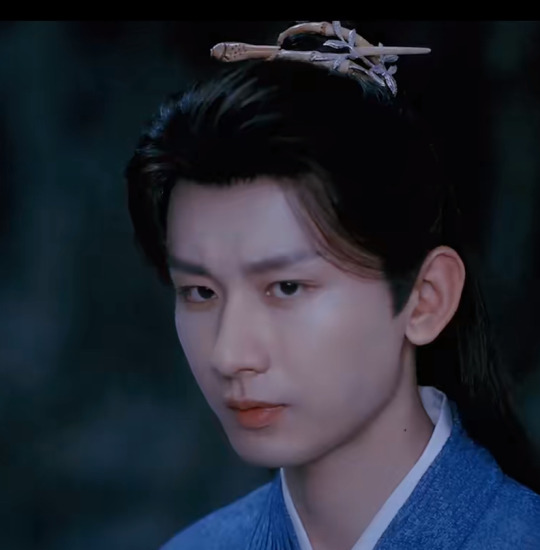

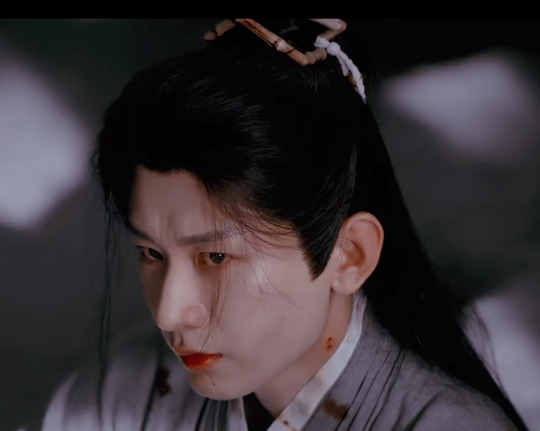
#mysterious lotus casebook#li lianhua#li xiangyi#lian hua lou#cheng yi#哥你就演個反派吧#雖說我覺得導演可能害怕觀眾的三觀跟著他的五官走#but like seriously#he would make such a good villain??? also it would be very hot uh#成毅
47 notes
·
View notes
Text
i thought 性描写 was "character study" but the ao3 tag wranglers filed it under "sexual content".... head in my hands what is the truth
#i was like maybe translating some fic in chinese this time would be fun but netizen slang is actually a bit scary.. its scary..#*opens pleco 我害怕得要命。。< this is a good phrase#i should keep it#txt
7 notes
·
View notes
Text
both performances from the melody journey finale, ep 11, have been uploaded to spotify!
and with them, that's a wrap! it's been really fun; i hope everyone enjoyed the show as much as i did!!!
ep 1, ep 2, ep 3, ep 4, ep 6, ep 7, ep 8!
#我滴妈 这音乐缘计划好好玩得啊#跟闺蜜一起看是最宝贵的感觉#(闺米)哈哈哈哈#事到如今第八期是我最喜欢的表演#荒芜之地 ❤️❤️❤️ 超爱#但MINE也好适合我喜欢的风格…#而我觉得沉默的羔羊这个唱法是全集最难最厉害的 真的太可怕吧我的天#最喜欢的服装是荒芜之地的 无比哈哈哈哈我这个狼米身份被发现了#(可惜 哈哈哈 我��真正的狼米热心一点儿不同………对深深没有什么想谈谈恋爱的想法#哎哎我这里有音乐缘计划的联系吗 啥有关#好滴好滴 我闭嘴了#zhou shen#周深#melody journey#音乐缘计划#还有还有 小小一句 然后我会闭嘴相信我#最后的评论: 音乐缘计划的造型美发师们对我们家的深深真么好好滴 全集没有不适合的服装!彩妆也绝了 !喜欢喜欢!#really raised the standard imo#哈哈加一句英文在这段华文后面 觉得奇奇怪怪的#好啦我闭嘴了#谢谢哥哥们#always online symptoms#Spotify
9 notes
·
View notes
Text

_🧋_
Although I look quiet and well-behaved, I actually blush and scream when I see a certain editor-in-chief. I start to fantasize about him calling my name and talking to me.
But I just think about it in my head. After all, I have a low sense of presence and no one pays attention to me.
Although I want to muster up the courage to talk to him, I absolutely can't do it now, right?
So I'll just continue to weave the fantasy world in my mind.
#oc#oc art#original character#oc × canon#hatoful boyfriend oc#shinju cocisi#shinju和tohri的距离是否有些太远了#shinju chan——妈妈我相信你可以的!!!(呼唤)#不如说只是我自己没有自信发布有他们交往内容的作品罢了#害怕被谴责…#伊利yuki的忧郁
3 notes
·
View notes
Text
every time I see a mandarin character or memes popular on mainland china platforms on this site I get very scared. It’s like when your mom drags you home for dinner when you’re 5 and absolutely shouldn’t have been out of the house in the first place
2 notes
·
View notes
Note
I don't know if this is for every military funeral, but based off my experience and that of my brother who's in the air force and was part of the group that would perform military funerals. The actual service itself is a normal service, it's the putting the casket in the ground that has all the military stuff going on with the flag and everything.
this is super helpful to know about thank you 😭 i think that makes sense, and i guess modern day films like to overglorify funerals
#the funerals ive been at so far are only fujianese ones... i really dont know much outside what i read scarcely#i will use this information for art ideas#thank you anon...#邮箱#其实这样想起哈尔是否会被丧礼而感得害怕嘛
2 notes
·
View notes
Note
jim will come after you
😭...
#what have i done to deserve this#我有一点害怕 :(#I've seen friends receive the same ask#what do you want from us </3
1 note
·
View note
Text
i had such a crush on wang leehom in high school ☆彡
#wang leehom#leehom wang#王力宏#不要害怕#music#musique#musik#musica#🎶#음악#موسیقی#музика#音乐#音楽#âm nhạc#Spotify
1 note
·
View note
Text
man really was like "excuse me? who tf are u calling ge"
#the way he really went “凌凌哥 我也害怕” no hesitation the minute he heard the other girl speak#i love this shady gay bastard#胡说八道#lynn talks zmyx
0 notes
Text
耆樂悠然 之 幻覺與錯覺
黎智麟醫生/精神科專科醫生 在正常的情況下,外界的刺激通過我們的感覺器官,例如眼睛和耳朵,將信息傳送到腦部,造成感知。至於「幻覺」,便是在沒有外界的刺激下,我們的腦部卻出現感知。例如身邊沒有人的情況下,一個人卻聽到有不同的人在說話,這種情況便是「幻聽」。 幻覺常見於思覺失調患者,但按長者的年紀而言,功能性的思覺失調較為少有。他們出現幻覺的原因很多時都與生理疾病有關係,其中一個常見的情況就是譫妄,意思是長者因為身體的問題導致有精神錯亂的情況;常見的原因包括感染(例如肺炎、尿道炎等等)和外科問題等等。 有一種認知障礙症名為「路易氏體認知障礙症」(Lewy Body…
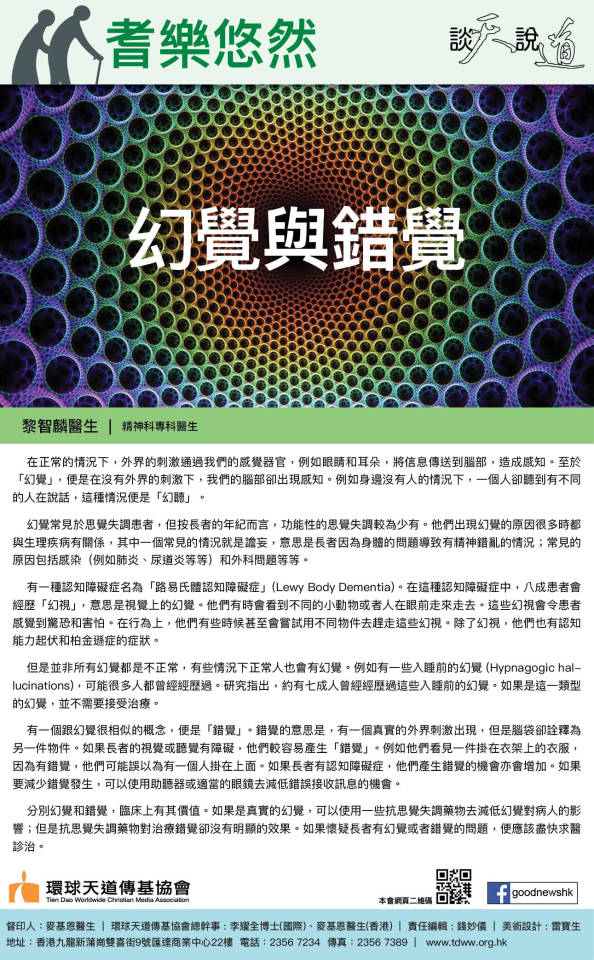
View On WordPress
#環球天道傳基協會#生理疾病#腦袋卻詮釋為另一件物件#錯覺#視覺上的幻覺#認知能力起伏#路易氏體認知障礙症#黎智麟醫生#入睡前的幻覺#外界的刺激下#幻聽#幻覺與錯覺#思覺失調#感覺到驚恐和害怕#抗思覺失調藥物#明報#柏金遜症
0 notes
Text
hehe. its soo crazy 一年前我什麼繁體字都看不懂但現在我只用繁體來寫中文 wooooo i worked so hard this year fr.
0 notes
Text
Link Click, internet slang, and Chinese culture
On the Chinese internet, there's a nickname for Link Click called Shiguang Daidaoren, meaning "the blade-bringers of time" instead of "the managers of time," the original title. Calling something "blade" is Chinese internet slang for something being angsty; whether it be derivative content or the originals themselves. Another meme is that Link Click isn't zhiyu (治愈,healing), which it is tagged as on Bilibili, but zhiyu (致郁,causing depression).
Link Click, especially its first season, is a deeply emotional and sentimental show. And it's a shame that so much of it gets not so much lost in literal, linguistic translation as much as it does in cultural, contextual translation. Many people can understand Emma's pain of being away from her parents in a new city, working a difficult job. But watching the scrolling comments on Bilibili, you get the cultural context of it -- the massive migration patterns within China from rural to urban, the children growing up and having to shed their local fangyan (方言) or, less formally, tuhua (土话)("speech of the locations" and "old-fashioned words," respectively) in exchange for Beijing Mandarin. This massive nation, nearly twice the population of Europe and only about 6% smaller in terms of area, is so diverse as to have created (what is close to) an immigrant experience for its citizens entirely within its borders. You visit your parents on Chunjie (春节), lunar/Chinese new year, on packed trains during the largest singular human migration event on Earth, annually. And when you get home, you are faced with something different from the cities you now live in -- everything from the buildings to the furniture to the clothes they wear. I hadn't realized how deeply I missed the gaudy, garish mianao (棉袄,coats) and mianbei (棉被,cotton blankets) until I saw familiar shades of too-bright burgundy in the hands of Emma's parents. The concept of this original-home, laojia (老家, old-home) is so strongly baked into our lives that every time I meet another Chinese person, I cannot but help but ask them 你老家哪儿啊? Where is your original-home? And even though I know nothing about Chinese geography, every time I hear the answer, a little piece slots into place nonetheless.
In slang, if something made you cry or otherwise feel an emotion you weren't expecting to feel, you refer to it as pofang (破防,breaking defences). And maybe it says something that an expression of human emotion is viewed as a failure in some defences, but that's introspection for another time. Watching on Bilibili, with its hundreds of comments scrolling by "My defences have been breached" and sobbing onomatopoeia, people in the comments saying that they miss their mothers and fathers -- I, too, miss my family. When Cheng Xiaoshi, in Chen Xiao's body, tried to speak his host body's local variation and came up with butchered dongbeihua (东北话, words of the east-north), I nearly fell out of my chair. It was the sound of home, of my grandmother telling us to hush around noon because our neighbours were napping and my grandfather showing me how to play spider solitaire.
Cheng Xiaoshi's breakdown in episode 5 hits hard for its vulnerability. "I'm scared of the dark" has the same literal meaning as "我怕黑," sure, but there is something devastatingly childlike in that three-syllable declaration of fear. Where English so often derives meaning from complexity, from winding metaphors and beautiful prose, Chinese can derive breathtaking meaning from less breath than it takes to say the word analogy. 我怕黑 is stripped of any grown-up pretenses of control or dignity. It is the barest this statement can be: I. Scared. Darkness.
And what he says following, too. 我害怕一个人. Longer yet no less potent. Alone, or lonely, has many translations in Chinese. 孤独. 寂寞. 孤单. 单独. Many more synonyms for all the different ways you can be lonely. But 一个人 is, once again, an almost child-like way of saying it. Before you have the vocabulary to express these complex emotions, 一个人 is a perfectly working expression. Translating it character-by-character, it means one singular person. It is something you say when you've been left behind. When you've been made to face everything by yourself. When the world is so, so, big, and you are just one singular person, with no companions to stand with you.
And, ah, Li Tianxi's Chinese nickname, 小希. It is the last character of her full name, with a "little" shoved right in front. It is an affectionate way to call someone younger than you. It is different from Xixi, its English rendition, because a repetition of the last character is a more generalized, affectionate nickname, whereas diminutives are almost always reserved for someone younger than you, when used in real life. The diminutive says don't be scared. I'm here now. I'll handle it.
There are endless details in Link Click that make everything about it seem a little bit more like home. The word 面馆 which means something a little, subtly different than "restaurant" or "noodles shop," a difference lost without the context of the phrase 下馆子 and the way adults say it with the gladness of once-children who only ate meat on new years. The "honorifics" as English calls them, to me more of just -- ingrained parts of someone's name. Within the snap of Mandarin syllables there is meaning and memory in every character. Jie, mei, di, ge, lao, da, xiao -- they are more than their literal meanings. They are a relationship, a promise.
Perhaps I am overthinking this, awkwardly Chinese as I am: too localized to be considered first-generation, too stubbornly attached to relate to second-generation. Maybe these linguistic subtleties only exist and matter in my mind, a writer of both languages (though I must say, my Chinese prose leaves… much to be desired) with a knack for pedantics. Regardless, I hope other Chinese fans of this show share this feeling. And surely, other people will, too. All the rural children who left home to pursue higher education and opportunities in faraway cities; the raised-in-poverty who spent their childhoods dreaming of buying their family new coats; the speakers of languages long since abandoned by their childhood friends. What a delight it is to see yourself in stories, neither exception nor abnormality but a norm. What a joy it is to be one of one point four billion.
780 notes
·
View notes
